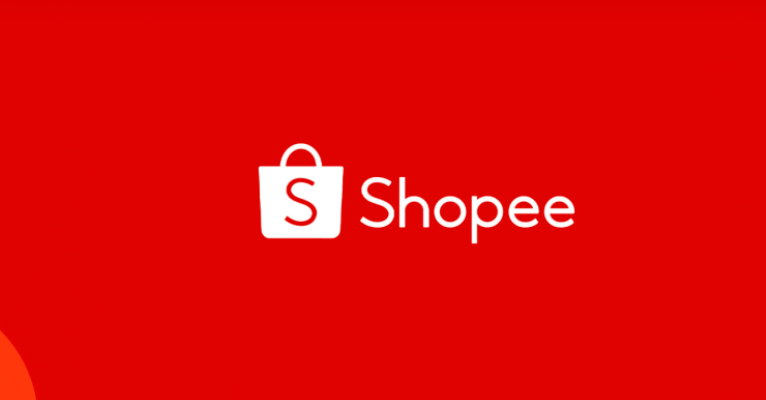思科即将主宰Linux市场主流?
时间:2008-04-13 来源:linux论坛
首先要说,这个标题有的太忽悠了。
日前,在夏威夷召开的思科开发伙伴峰会上,思科宣布了一份精心准备的产品声明,该产品名为“思科应用扩展平台(AXP)”,平台基于Linux架构,而微软正好受到Linux的巨大威胁。AXP使得软件伙伴为思科平台开发产品时变得更加便捷。
思科早期的AXP应用伙伴包括Avocent(分支IT架构管理)、 InterComponentWare(医疗卫生解决方案提供商)、NICE(分支网络电话录音)、(公共服务构架监控)、(IP支付服务)、 ProSyst(管理服务)、Sagem-Interstar(IP传真服务)、Verint(分支网络电话录音)、Workbrain(员工管理)等。思科的这些合作伙伴都是小开发商,几乎没有行业巨头,但它们都是统一通信市场的先行者。因此,对思科未来在统一通信市场的布局和竞争力都将发挥极其重要的作用。
而所以这一切,都是因为通信设备巨头思科与微软都希望获得“统一通信”(unified communications)市场的支配地位,为此,思科将全面支持开放源应用平台Linux。
Well, maybe -- and maybe not. Yesterday's big news from Linux that it would be opening up its millions of ISR routers to third party applications is massive news. It would have been big news if Cisco has just opened up the routers, but by doing it with a Linux base, Cisco may well dramatically change the Linux server landscape.
Instead of needing to rely on Red Hat or Novell to supply Linux running on servers from HP, IBM, Dell, etc., a user that already has an ISR (and there are 4 million of them out there) can just buy an AXP from Cisco, put that module on their ISR and -- badda boom badda bing -- they've got a Linux application server.
The Cisco execs I spoke with downplayed the competitive effect on the server marketplace: Certainly, the AXP is not going to replace all servers as we know them today -- but it will replace a few of them.
Beyond technology, Cisco's single greatest strength in my opinion is its incredibly massive and aggressive sales force. Every time I've ever seen Cisco CEO John Chambers speak, he almost always makes a quip about how he loves to sell. In a real sense, Chambers is one of the best salespeople the networking business has ever known.
If Cisco puts the full force of its sales machine behind the AXP (and why wouldn't they, considering they've got at least 4 million potential customers) the footprint for Linux application servers will grow dramatically. Yes, it would be a win for Cisco, since Cisco is using its own flavor of Linux. But it would also be a massive win for Linux overall.
Cisco understands the dynamics of open source even though they are very much a proprietary vendor.
I asked Cisco the other day specifically about the open source GPL license -- something that is often misunderstood, but not by Cisco.
"From a GPL perspective, we've taken all the things that are GPL and reciprocated the code back to the community," said Joel Conover, manager of network systems at Cisco.
For the record, that's the right answer. Linux grows because of contributions.
It's a tremendous thing, to have Cisco contributing back to Linux. When you think about all the things that Cisco is likely to learn as it deploys the AXP across potentially millions of routers, the potential for innovation is staggering.
According to a recent Linux Foundation study, Cisco is already contributing to Linux and currently represents 0.5 percent of changes (which is a good number). I would expect that with the AXP in the market, Cisco's contribution rate will go up.
Nearly two years ago, I saw a panel at LinuxWorld talking about all the reasons why Linux has been successful over the last 15 years. One of the reasons cited was Oracle's support for Linux back in 1998.
In my analysis, Cisco's AXP in 2008 will be a big part of the reason why Linux will continue to be successful moving forward in the next 15 years.
日前,在夏威夷召开的思科开发伙伴峰会上,思科宣布了一份精心准备的产品声明,该产品名为“思科应用扩展平台(AXP)”,平台基于Linux架构,而微软正好受到Linux的巨大威胁。AXP使得软件伙伴为思科平台开发产品时变得更加便捷。
思科早期的AXP应用伙伴包括Avocent(分支IT架构管理)、 InterComponentWare(医疗卫生解决方案提供商)、NICE(分支网络电话录音)、(公共服务构架监控)、(IP支付服务)、 ProSyst(管理服务)、Sagem-Interstar(IP传真服务)、Verint(分支网络电话录音)、Workbrain(员工管理)等。思科的这些合作伙伴都是小开发商,几乎没有行业巨头,但它们都是统一通信市场的先行者。因此,对思科未来在统一通信市场的布局和竞争力都将发挥极其重要的作用。
而所以这一切,都是因为通信设备巨头思科与微软都希望获得“统一通信”(unified communications)市场的支配地位,为此,思科将全面支持开放源应用平台Linux。
Well, maybe -- and maybe not. Yesterday's big news from Linux that it would be opening up its millions of ISR routers to third party applications is massive news. It would have been big news if Cisco has just opened up the routers, but by doing it with a Linux base, Cisco may well dramatically change the Linux server landscape.
Instead of needing to rely on Red Hat or Novell to supply Linux running on servers from HP, IBM, Dell, etc., a user that already has an ISR (and there are 4 million of them out there) can just buy an AXP from Cisco, put that module on their ISR and -- badda boom badda bing -- they've got a Linux application server.
The Cisco execs I spoke with downplayed the competitive effect on the server marketplace: Certainly, the AXP is not going to replace all servers as we know them today -- but it will replace a few of them.
Beyond technology, Cisco's single greatest strength in my opinion is its incredibly massive and aggressive sales force. Every time I've ever seen Cisco CEO John Chambers speak, he almost always makes a quip about how he loves to sell. In a real sense, Chambers is one of the best salespeople the networking business has ever known.
If Cisco puts the full force of its sales machine behind the AXP (and why wouldn't they, considering they've got at least 4 million potential customers) the footprint for Linux application servers will grow dramatically. Yes, it would be a win for Cisco, since Cisco is using its own flavor of Linux. But it would also be a massive win for Linux overall.
Cisco understands the dynamics of open source even though they are very much a proprietary vendor.
I asked Cisco the other day specifically about the open source GPL license -- something that is often misunderstood, but not by Cisco.
"From a GPL perspective, we've taken all the things that are GPL and reciprocated the code back to the community," said Joel Conover, manager of network systems at Cisco.
For the record, that's the right answer. Linux grows because of contributions.
It's a tremendous thing, to have Cisco contributing back to Linux. When you think about all the things that Cisco is likely to learn as it deploys the AXP across potentially millions of routers, the potential for innovation is staggering.
According to a recent Linux Foundation study, Cisco is already contributing to Linux and currently represents 0.5 percent of changes (which is a good number). I would expect that with the AXP in the market, Cisco's contribution rate will go up.
Nearly two years ago, I saw a panel at LinuxWorld talking about all the reasons why Linux has been successful over the last 15 years. One of the reasons cited was Oracle's support for Linux back in 1998.
In my analysis, Cisco's AXP in 2008 will be a big part of the reason why Linux will continue to be successful moving forward in the next 15 years.
相关阅读 更多 +
排行榜 更多 +










